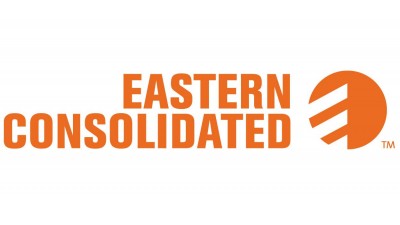Why Philanthropy Matters: A Q&A With This Year's JCCA Honorees, Eastern Consolidated’s Paris And Hauspurg

On May 9, Eastern Consolidated co-founders Daun Paris and Peter Hauspurg will be honored by JCCA at its Celebration of Hope: A Gala to Benefit Children and Families at the Rainbow Room in Rockefeller Center.
Founded in 1822, JCCA (formerly known as the Jewish Child Care Association) is the second-oldest charity in the nation and the fourth-largest child welfare agency in New York State. The agency provides foster care, mental health and educational services and addresses the severe medical needs and developmental challenges that often present in this group.
Paris, Eastern Consolidated’s president, and her husband, Hauspurg, its chairman and CEO, have served on the JCCA Board of Trustees for a combined 20 years, and Hauspurg currently serves as chairman of the JCCA board of trustees. The power couple recently shared their thoughts about philanthropy and JCCA with Bisnow.
Bisnow: Philanthropy has played a big role in both of your lives. Why is it so important to you?
Paris: We have been so fortunate with our family and our business, and because of that we have a responsibility to make a difference by being involved in philanthropic efforts. I’ve seen firsthand how giving of time and financial resources can impact the course of a person’s life, and that’s been very rewarding. It’s been an honor to serve as a trustee of JCCA, as well as Northern Westchester Hospital, now part of Northwell Health.
Hauspurg: If you have been successful in business and your career, you have an obligation to give back to people in communities that haven’t been as fortunate. I admire the many other people in our industry who have also chosen to do so.
Bisnow: Why are you so passionate about JCCA?
Paris: Every year, JCCA provides critical services to more than 16,000 children and families in all five boroughs of New York City, Long Island and Westchester County. These are kids and their families who have fallen through every other safety net and landed at our agency’s door. JCCA’s programs are vital to breaking the cycle of poverty, and without them, these families don’t have a chance. With help, they can get back on track.
Hauspurg: JCCA is helping kids that are otherwise thrown out by our society. The organization is guided by the Jewish mandate of tikkun olam — the responsibility of every person to make the world a better place. This mission is evident among the staff. These incredible people are dedicated to the children they serve, whether it’s in our 13-bed program for young girls who have been victims of sex trafficking, the only program like it in the metro area, or teaching learning disabled children how to care for themselves. We also go to great lengths to ensure that students who have dropped out of high school get a second chance at JCCA’s award-winning alternative high school in Brownsville, Brooklyn, making sure that they attend class and graduate.
Bisnow: When did you learn about JCCA?
Paris: Our two children started volunteering when they were in middle school at JCCA’s 150-acre campus for at-risk youth in Pleasantville in Westchester County, and saw the need for enrichment activities to allow the residents to have fun while learning teamwork and leadership skills. Out of that experience Philip, who is now 30, came up with the idea of a basketball program for the kids living on the campus, and Alexandra, who is 29, started a dance program. Volunteering on the campus helped shape who Philip and Alexandra are today — compassionate, empathetic and generous young people who understand the needs of those who are less fortunate.
Hauspurg: I picked up Philip and Alexandra from the campus one day and what I saw really tugged at my heart strings and prompted me to want to get involved. The Pleasantville campus houses several hundred of New York City’s most disadvantaged kids ages 6 to 18 who come from homes where both parents are absent due to drugs, alcohol, prison, desertion or death, who have no relatives to care for them, and who are too disabled or troubled to be placed in one of JCCA’s 400 foster homes. The campus has a number of cottages that house up to 12 children and a 24/7 staff member, and two public schools, one for the severely learning disabled and another for young people with behavioral problems.
Bisnow: What has been your experience volunteering with JCCA?
Paris: Peter and I began mentoring some of the residents from the campus, exposing them to ordinary family activities that most children take for granted. Then we realized that when these young people turned 18 and aged out of the system, they didn’t have any job skills to support themselves. To address this need, we started the cosmetology program, which gave them a skill that would enable them to become self-sufficient. We donated a building on the campus to house the program.
Hauspurg: We also both joined the board of trustees. I’ve been chairman for the last three years and was president three years before that.
For more information about the gala on May 9 at the Rainbow Room, please visit jccany.org/gala.
To learn more about this Bisnow content partner, click here.

